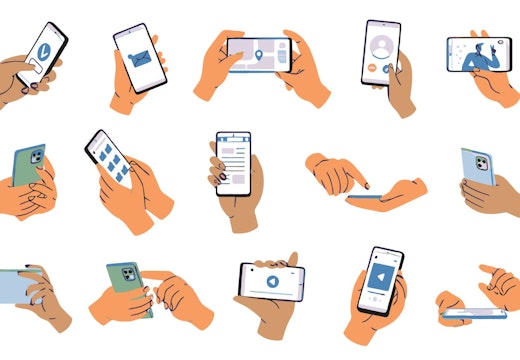Worker wellbeing impacted by exposure to AI, robotics and wearables
New UK research paper highlights the negative impact of certain types of automation technology on quality of life for employees and asks the question: what does ‘good’ automation look like?
While workers’ quality of life is boosted when they interact more frequently with digital communication technology such as laptops, tablets, smartphones and real-time messaging tools, it is impacted negatively when they encounter newer workplace technologies such as wearables, robotics, artificial intelligence and machine learning software.
This is one of the key findings from a new working paper compiled by UK researchers as part of the Pissarides Review into the Future of Work and Wellbeing.
This review is a £1.8m collaboration between the Institute for the Future of Work (IFOW) and an interdisciplinary team from Imperial College London and Warwick Business School. It is led by Nobel Prize-winning economist Professor Sir Christopher Pissarides and funded by the Nuffield Foundation.
Impact on quality of life
The adoption of new automation technologies and AI systems is happening rapidly across all economic sectors. While public policy in the UK has been preoccupied with how this new technology may lead to people losing their jobs, less attention has been given to how technologies that people are exposed to at work are impacting their quality of life.
In the past, concepts of wellbeing have focused on general findings about ‘stress’ and ‘burnout’ but provided little insight into the causes or consequences of that stress. Additionally, most past studies have taken a very narrow view of technology types, making it difficult to disentangle these connections and relationships.
The work summarised in this working paper, based on a survey of nearly 5000 UK workers, aims to address both of those weaknesses. The review has also been conducted with reference – for the first time – to EuroQoL EQ-5D-3L, one of the most widely accepted, multidimensional measures of health-related quality of life and wellbeing.
Adding to knowledge
In addition to the main finding, the review also highlights that perceived rights at work and HR philosophies that emphasise employee wellbeing have a positive correlation with quality of life. It also seeks to improve our understanding of how ‘good automation’ might improve societal wellbeing.
Professor Sir Christopher Pissarides comments: ‘As new technologies rapidly reach further into our working lives, it’s vital that we understand how our interactions with them impact our quality of life. This new report for the Review that I am leading into the future of work and wellbeing adds significantly to our knowledge in this area.
‘Importantly, it does so with reference to widely validated quality of life and technology exposure measures, thus offering – for the first time – new depths and breadths of insight, which also suggest rich areas for further work.’
‘This flagship report interrogates the relationship between the exposure of AI and quality of life’
Anna Thomas, co-founder and co-director of the Institute for the Future of Work, adds: ‘This flagship report interrogates the relationship between the exposure of AI and other automation technologies, human capabilities and quality of life for the first time.’
The main message of this pioneering study is that new technology can damage workers’ wellbeing – unless employers explicitly take steps to ensure it does not. Read the working paper, ‘Does technology use impact workers’ quality of life? A report on worker wellbeing’ here.








